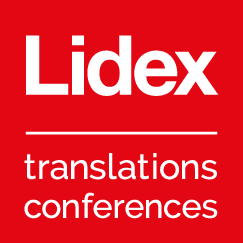
Lidex – quick and reliable
Your translation and interpreting services provider
Machine translation
In today’s world, technological solutions are an integral part of our daily lives. They enhance our work and save us valuable time. Machine translation tools, which quickly provide insights into the content of original documents, are increasingly popular. It is definitely worth knowing more about machine translation, its advantages and limitations, and safety of use.
What is machine translation?
Machine translation is the process of translating text from one language into another, using computer algorithms. This technology leverages artificial intelligence and modern techniques to analyse and transform source data. According to the ISO 17100:2015 standard, against which Lidex is certified, machine translation is the automated translation of text or speech from one natural language to another using a computer system. The output serves as a draft for further refinement by a translator or post-editor, who then produces the final version of the translation. The process of reviewing machine-generated translations is known as post-editing, and translation with post-editing is one of the many services offered by Lidex.
How is machine translation performed?
In essence, machine translation relies on analysing source texts and extensive linguistic corpora that include millions of sentences in various languages. Algorithms learn from these data to accurately convert words and grammatical structures from one language to another. As the database grows, the system becomes increasingly proficient at generating translations. However, it’s important to note that machine translation is just the initial step in the translation process, primarily aimed at expediting the translation work.
Why should you choose a professional translation company for machine translation?
With the widespread availability of machine translation platforms like Google Translate and DeepL, and built-in translation tools in Microsoft Office, one might question the need for outsourcing to a professional translation company. There are two key reasons for partnering with a professional company – the guarantee of data security and confidentiality provided by the appropriate partner, and the competences and possibilities in the field of post-editing machine translations. Lidex offers machine translation services complemented by expert post-editing, ensuring that the final output meets our Customers’ stringent requirements. The entire process is certified for compliance with the ISO 18587 standard, and full data privacy protection and security are guaranteed by Lidex’s ISO 27001 and ISO 27701 certificates.
Why should confidential texts not be translated using publicly available translators?
The fascination with new technologies and their potential to simplify everyday tasks and make work easier can sometimes cause other important aspects to be overlooked. One common mistake is uploading company texts to popular, publicly accessible translation tools. Due to their sensitive or confidential nature, or the inclusion of company or personal data, these texts should not be processed using such tools. Publicly available translators do not guarantee confidentiality or security, meaning that your texts and data might be used by the software provider without restriction.
In this regard, it is advisable to work with a professional translation service provider that uses only professional machine translation engines and has strict confidentiality agreements with software providers.
It is also important to verify whether the supplier holds the ISO 27001 certificate, which ensures the complete security of the materials submitted for translation.
Only then can you confidently submit your documents for machine translation and post-editing, ensuring that the final text, reviewed by a professional translator, meets your quality requirements.
Does machine translated text require additional editing?
We can imagine that there are situations in which post-editing is not necessary – this happens when we just want to find out what a given document is about. However, if we plan to use the material for business purposes, post-editing is a must. Machine translation itself is only a starting point for further work of the translator, who creates the final translation text as part of post-editing. They correct any imperfections in the machine translation, ensure consistent terminology, and check the text in every possible aspect.
What is machine translation post-editing?
As we have already mentioned, the content generated by the algorithm requires a number of corrections. Machine translation post-editing is the process of reviewing and correcting text translated by AI. An experienced translator, the post-editor, examines the translation, identifies errors, and makes necessary adjustments. The goal of post-editing is to achieve a text that closely resembles a human translation, making it clear and understandable to the recipient.
What are the advantages of machine translation with post-editing?
The use of innovative tools often makes our work more comfortable. However, when algorithms are used in translation, our Customers also benefit. Thanks to machine translation, you can significantly shorten the order execution time, which is especially important in cases where large volumes of materials need to be translated in a very short time. This is often required by supervisory institutions or offices. Additionally, machine translation with post-editing is cheaper than translation made and reviewed by a human, while its quality is comparable to the latter.
Does machine translation have any limitations?
So far, we have focused only on the advantages of the proposed solution. But does it also have limitations that are worth knowing about? When using algorithms, you must always be aware that the technology can be unreliable. This is especially evident when translating jokes, idioms, or proverbs. AI tools usually translate very literally and do not consider the broader context. They also cannot account for cultural differences. Even the most modern tools cannot capture the linguistic nuances related to the experience or history of individual communities.
This is why professional post-editing is so important. An experienced translator will detect any errors and inaccuracies that could not only confuse the recipients but also potentially offend them.
What is neural machine translation?
Traditional machine translation methods, such as Statistical Machine Translation (SMT), relied on hand-coded rules and statistics.
Neural Machine Translation (NMT) represents the latest and most effective translation technology, used by companies like Google, Microsoft, and Amazon. NMT employs neural networks to generate translations, allowing algorithms to learn from large datasets and better handle translation challenges. As a result, neural machine translations typically offer higher quality and greater precision compared to traditional methods.
What sets our post-editors apart?
Our post-editors are experienced translators who specialise in reviewing texts translated by algorithms. With their extensive knowledge and skills, supported by specialised post-editing training, they can detect and correct even the smallest errors that machines might produce. They are also distinguished by their understanding of various industry specifics and their ability to account for cultural and linguistic nuances in translations.
Continuous training allows us to expand our team of post-editors and enhance their expertise.
What to do if you’re unsure about choosing machine translation with post-editing?
Choosing the right type of translation is crucial and should consider all relevant factors, including the specifics of the source text and its intended use. Our internal MT Consultant always assesses the material provided by our Customers at the valuation stage. Only after this assessment do we recommend the best process for a given translation. If for any reason the material is not suitable for machine translation with post-editing, we inform our Customers about it and offer a standard translation made and reviewed by a human.
Not sure if machine translation will meet your expectations? Trust a professional – consult us and we will answer this question.
Feel free to contact us:
Warsaw machine translation with post-editing
Tricity machine translation with post-editing
Katowice machine translation with post-editing
or use the contact form below

Translation and interpreting services Warsaw
tlumaczenia@lidex.pl
(22) 512-47-30
Monday – Friday 8:00 a.m. – 6:00 p.m.
- The fields marked with an asterisk (*) are mandatory.

